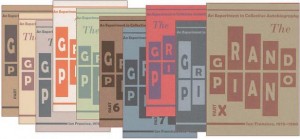Grand Piano TV episode 6: Barrett Watten
original recording, 17 November 2022
take 2: 27 November 2022
The name “theoretical biography” is intended to distinguish its territory from that of philosophy and physiology better than before, and to expand that biological approach which has been one-sidedly paraded and, in part, greatly exaggerated by the most recent school of psychology (Darwin, Spencer, Mach, Avenarius). Such a science would have to account for the mental life as a whole as it progresses from the birth of an individual to his death according to certain laws, just as it does for the coming into being and the passing away, and all the discrete phases in the life of a plant.
—Otto Weininger, Sex and Character (1903)
Introduction: method/technique
[Original recording] I’ve been thinking about how to represent The Grand Piano in this reading. One thought was simply to take a section and read it straight through with comments, build a structure out of it—like the concept of “reading out” I spoke about the other day at the Kelly Writers House event, using the text as a platform to make more text, more interpretation. I decided not to do that; rather, I decided to sample from the text and let the text do the work of commenting on itself. (If you want to experience the section that I would have read straight through, you can go to The Grand Piano part 4 and read that section.) I’ve done quite a lot of “reading out” of The Grand Piano; in Questions of Poetics there is a whole chapter on it. Even as the work was coming into focus, not yet complete, I was giving lectures on it—the whole process was entirely immodest. … More












